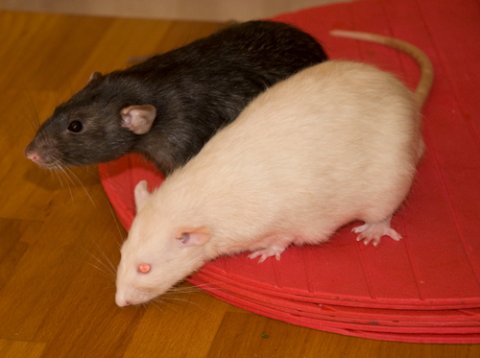Remy's pic from Pixar / Rats picture from Google
Recently, some neighbors started mentioning rats in the whereabouts of our buildings. While there are different types of chemicals to get rid of rodents, this post will explore natural ways and repellents that are more efficient and sustainable in my opinion.
Rats come in many shapes and sizes. They are usually medium-sized rodents but some species can be as large as a small cat! What is referred to as house rats are typically brown or black in color and have long tails. They live anywhere humans live, in cities as well as in the countryside, although they prefer warmer and temperate climates. Some can live up in trees but most don't. These primarily nocturnal mammals stick together in packs and their average lifespan is 2 years. Because many predators eat them, they breed quite rapidly, around 100 offspring per year. These smart rodents communicate with each other via ultrasound. They are omnivores and will scavenge trash or any leftover food accessible to them. That is why they can be seen roaming around human settlements. These foragers also eat grains, fruits, snails, and even small birds and reptiles. They might even bite off unprotected cables! Rats adapt their diet to the habitat they are found in. They are infamous for spreading diseases among humans, such as the bubonic plague. Recent studies blame the spread of the plague on parasites living on the rats and not the rodents themselves. However, the brown rat species is usually used in labs for medical, genetic, and biological research. It is important to note that mice and rats are quite different: for instance, rats are cautious while mice are very curious. Rats would dig under plants or a building while mice rarely burrow.
People are generally weary of rats, although some keep them as pets... You can repel them, and other rodents in non-chemical, safer ways. Let's explore how to naturally get rid of these creatures:
- mammals are natural predators of rats. I understand you won't be raising a fox, a weasel, a snake, an owl, or a hawk for that purpose. Keep in mind that domesticated cats can perfectly do the job
- snap and live catch traps are preferable to glue or poison which can kill other animals than the rats. Besides, being smart, rats are highly adaptive and will not come near something that has killed a kin
- keep garbage and food areas clean to avoid access to food sources and freshwater
- close cracks, holes, and gaps in walls and anywhere the small creatures can slip through, especially before winter
- strong smells like the ones of bay leaves, onions, ammonia and vinegar, peppermint, eucalyptus, citronella, and geranium oils can deter rats and rodents in general.
Even if the rats are contained outside your home, they remain a nuisance. They can eat/contaminate your pet's food or destroy your crops. Fortunately, there are several plants you can grow in your garden to keep rats away: amaryllis, snowdrops, geraniums, daffodils, lavender, sage, bergamot, black pepper plants, elderberries, and camphor laurel trees are just a few examples. These will ensure your property will be spared from an infestation of rodents. Happy eco-cleaning 🍃🌱

